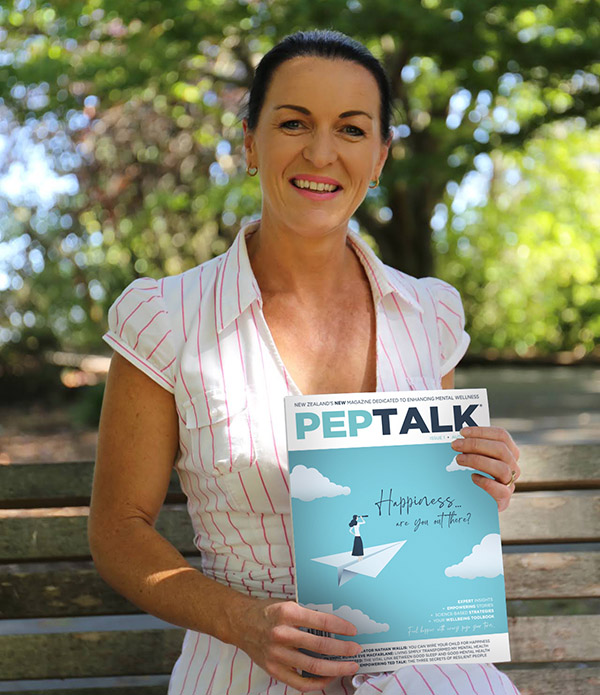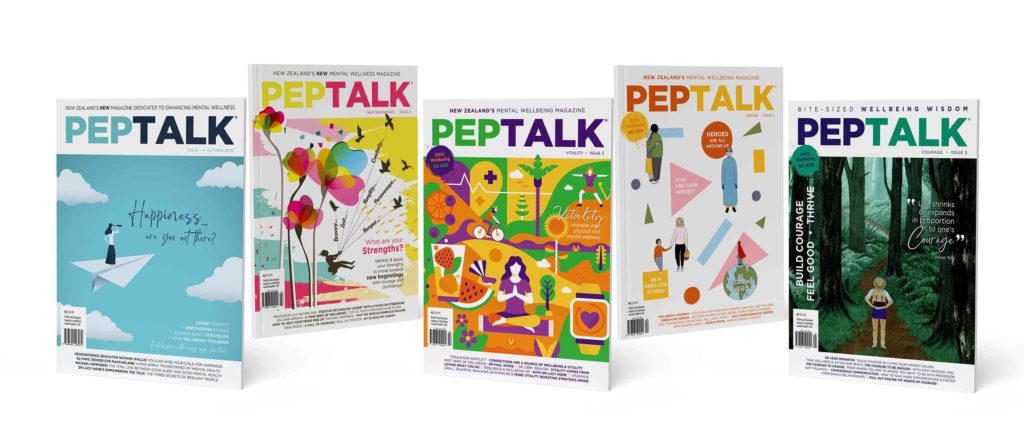
By Nadine Hickman
I’ve often heard people make general sweeping statements like – “That was a terrible year” or “Everything is going wrong”, when in reality a few things went wrong, but yet the whole day, week, month, or year is judged on those unwanted happenings. If we take the time to question our perceptions and look a little deeper, I’m pretty sure we’ll find that along the way there were equally if not more things that went right, more to be thankful for, than there were things to bemoan.
The good news is you can override this tendency to focus on the negative, and there’s some good reasons why you should bother.
The negativity bias.
Back in the days of our ancestors it was important for them to notice and focus on negative things, if they didn’t their life could be at stake. The problem is our brains haven’t caught up with the modern-day world of relative safety we now live in, where it’s highly unlikely a saber-tooth tiger will jump out of a bush. This tendency to give more attention to negative things is called The Negativity Bias.
Lucky for us our brains have neuroplasticity, which means we can change our brain. It takes effort, but it’s effort that’s well worth it.
Try this helpful exercise the next time you find yourself over-generalising that it’s all bad.
Take an A4 piece of paper and divide it into two columns.

Head up the left-side BUGGER!
And the right-side BLESSINGS.
On the left, list all the things that went wrong in the day/week/month/year – whatever timeframe you’re feeling negative about. These are all the things that would be classed as saying Bugger about.
On the right, list all the things that went right, the blessings.
It’s so easy to miss these things or take them for granted. If you find it hard to think of the blessings, think about it in terms of the things that could have gone wrong but didn’t, and be thankful for those.
Expand your thinking to include things, people and events in work life, home life, extended family, community and beyond.
Get your wife/husband/partner/kids/staff involved in helping you build the list.
Control the controllables
In all business there are uncertainties – boy has the last two years taught us that! But high-level uncertainty is something farmers have always had to deal with, you’re at the mercy of weather, markets, and regulations, all of which you have little or no control over.
The reality is, no amount of mental energy and worry is going to change the things you can’t control, so ask yourself, what do I have control over?
You can control:
- What you focus on
- What you talk about
- How you act
You can control going out and doing what you do well every day, remembering why you love it, and enjoying those aspects.
Use willpower to focus on the good
Once you’ve completed your list in the exercise above, the important next step is, through sheer willpower, force your mind to focus on the things under the blessings heading. Your brain is naturally going to want to focus on the buggers but with practice you can override this evolutionary function and train your brain to focus more on the positives in your life.
Put your bugger/blessings list on the fridge for a daily reminder.
On particularly rough days
Ok, so perhaps on a very rare occasion there’s more on the left side of your list. Even if there’s 10 buggers and one blessing, you can STILL choose to focus on that one thing that you have to be grateful for.
Why should you bother?
The above might sound like a lot of work and it is. It takes time and effort to change your brain, especially if it’s spent your lifetime operating with a strong negative bias. So why should you bother? Quite simply because when you focus on the good, you feel good, which is good, right!
Also, when you feel good, you function well – here’s a short list of some research-backed benefits of feeling good and being more optimistic:
- more productive
- make better decisions
- better relationships
- live longer
- better physical health – e.g. reduced risk of heart attack and cancer
- more creative thinking (finding solutions to problems)
Source : Robinson, 2016
Dr Martin Seligman, a world-renowned researcher in the field of Positive Psychology shares this eye-opening fact:
BEING A PESSIMIST IS EQUIVALENT TO SMOKING TWO AND A HALF PACKETS OF SMOKES A DAY, IN TERMS OF CARDIAC HEALTH!
I hope you’ll agree that focusing on the good is well worth the effort for both you and the people around you, so what are you waiting for, grab your piece of paper and get started.

Nadine Hickman lives at Taimate, Marlborough with her husband Paul and four children. She is the editor of PEPTALK, a publication that teaches mind health strategies in an accessible, engaging, and relatable way. PEPTALK’s mission is to transform the future of mental health by arming New Zealanders with the skills to build healthy minds.
You can learn more learn more and order copies of PEPTALK online at


